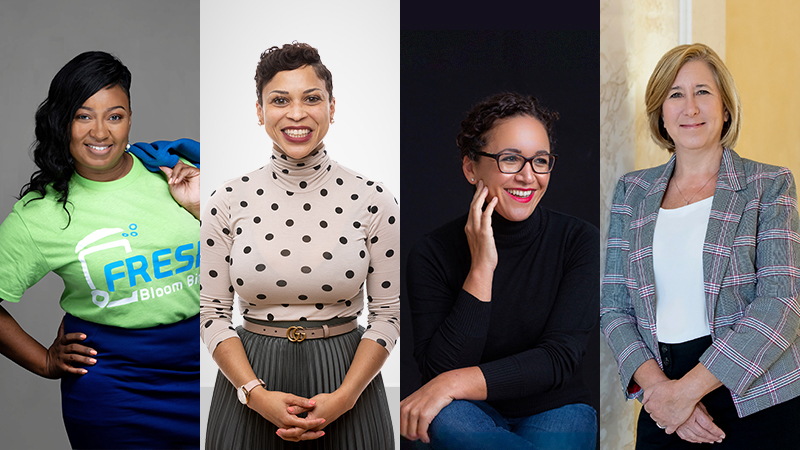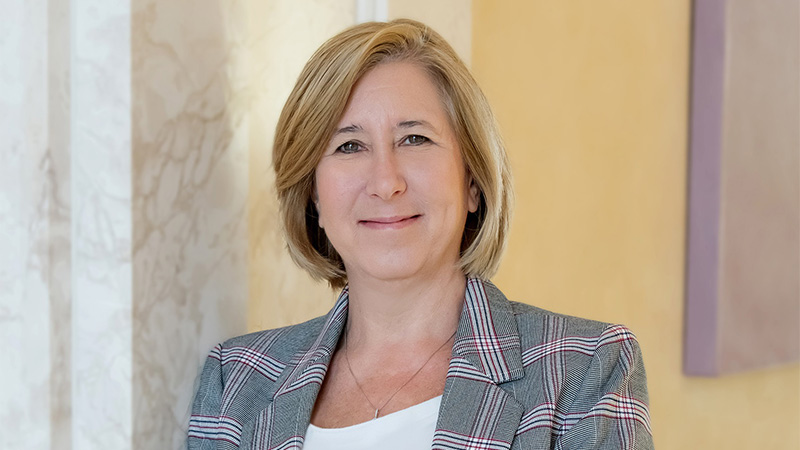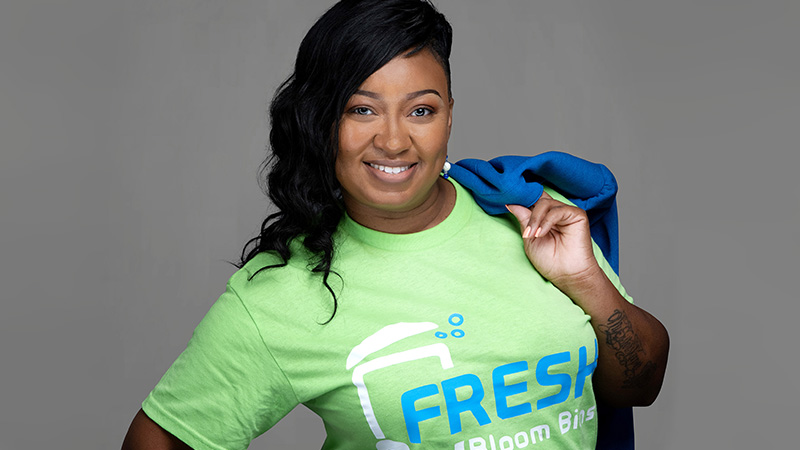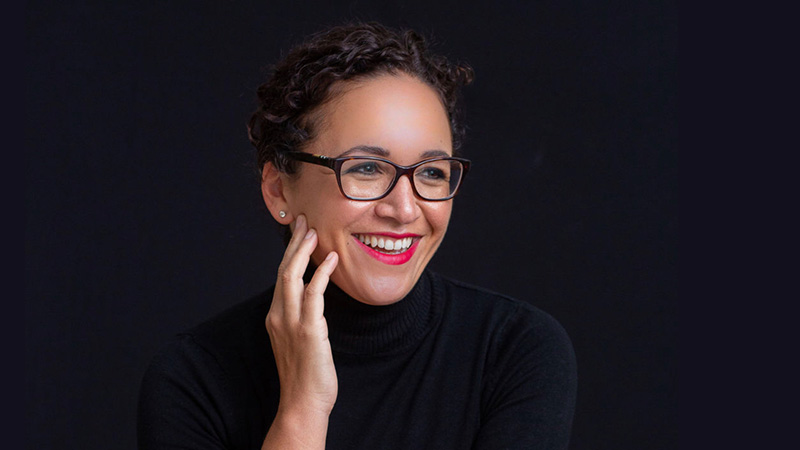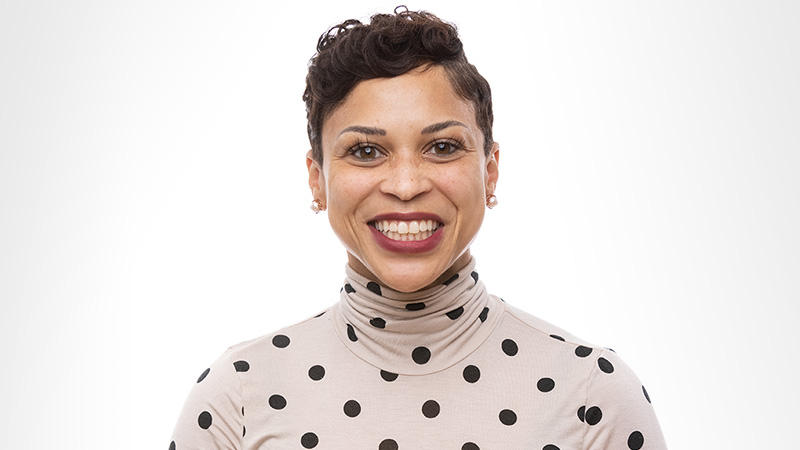On a sweltering summer day in Ohio, Tia Johnson went outside to take out the trash. What awaited her was revolting.
“I describe it as trash trauma,” she says, “I opened up the trash can, and there were flies. There were maggots. It was disgusting.”
When her son got home, she informed him that he needed to clean the bin. “He gave me all the teenage attitude,” she laughs.
Later that night, Johnson had a thought: It wasn’t just her son—nobody really wants to clean their trash bins. Suddenly, a battle over trash bin maintenance felt like a business opportunity.
“I got on the internet, I started Googling ‘cleaning trash cans.’ I was thinking that I was going to invent something,” Johnson says. To her surprise, she found a person in Florida who was building custom trucks that cleaned trash bins.
“ I just needed to bring the idea to the Columbus market,” she says.
From that idea, Johnson launched Fresh Blooms Bins in 2020. She purchased three specialty trucks that lift trash bins and dumpsters, clean them with high-powered, hot-water jets and then apply a biodegradable, fresh-smelling sanitizing solution.
Fresh Bloom Bins experienced a strong start, signing several local business clients.
However, shortly after she launched her business, the pandemic forced companies to close or go remote, and the market for regular bin cleaning dropped. Even as businesses gradually reopened, many stopped contracting Fresh Bloom Bins in hopes of saving money.
While looking for resources to support small, women-owned businesses, Johnson found JPMorgan Chase’s mentorship program for minority entrepreneurs, which provides educational resources on topics like cash flow, marketing and business growth, and one-on-one coaching.
She connected with Laura Gibbons, a JPMorgan Chase senior business consultant, whose counsel served as a lifeline for Johnson during that turbulent period.
“The program allowed me to really take a step back and just breathe,” Johnson says.
It also helped her gain clarity and craft a plan. Among the insights that she gained from the program, Johnson highlights the importance of knowing when to ask for help.
“As a business owner, you have to know when it’s safe to be vulnerable,” Johnson says. “Laura made it very safe for me to say, ‘Man, I have no idea what’s going to happen tomorrow.’”
Resolute in her efforts to keep her business open, Johnson pivoted and started marketing her services to homeowners and restaurants–finding new contracts to keep Fresh Bloom Bins afloat. She also discovered additional business opportunities, like the Women's Center for Economic Opportunity (WCEO) pitch competition, which elevates and empowers business owners and innovators who are women of color in Ohio. Johnson won first place, which came with a $15,000 grant, provided by JPMorgan Chase.
“As a young girl, I never knew a business owner,” Johnson says. “Back then, I thought you had to dance, you had to be a stellar athlete or, you had to be in the entertainment industry to build wealth.” Now, Johnson says she’s the only Black female in the Midwest who owns a trash can cleaning service.
Today, Fresh Bloom Bins is thriving. Johnson is responsible for several contracts and can seasonally hire between seven and 10 employees, many of whom are justice-involved.
Johnson recounts meeting one of her employees’ daughters.
“My daddy works for you?” The daughter asked. Johnson said yes. “So, you’re like the boss?” the girl asked. “Yeah, I’m the boss,” Johnson replied.
Later that day Johnson saw the daughter again. This time, she said to Johnson, “You think I can be a boss one day?”
Emphatically, Johnson said yes.
Courtney Falato, Vice president and program officer of global philanthropy at JPMorgan Chase




